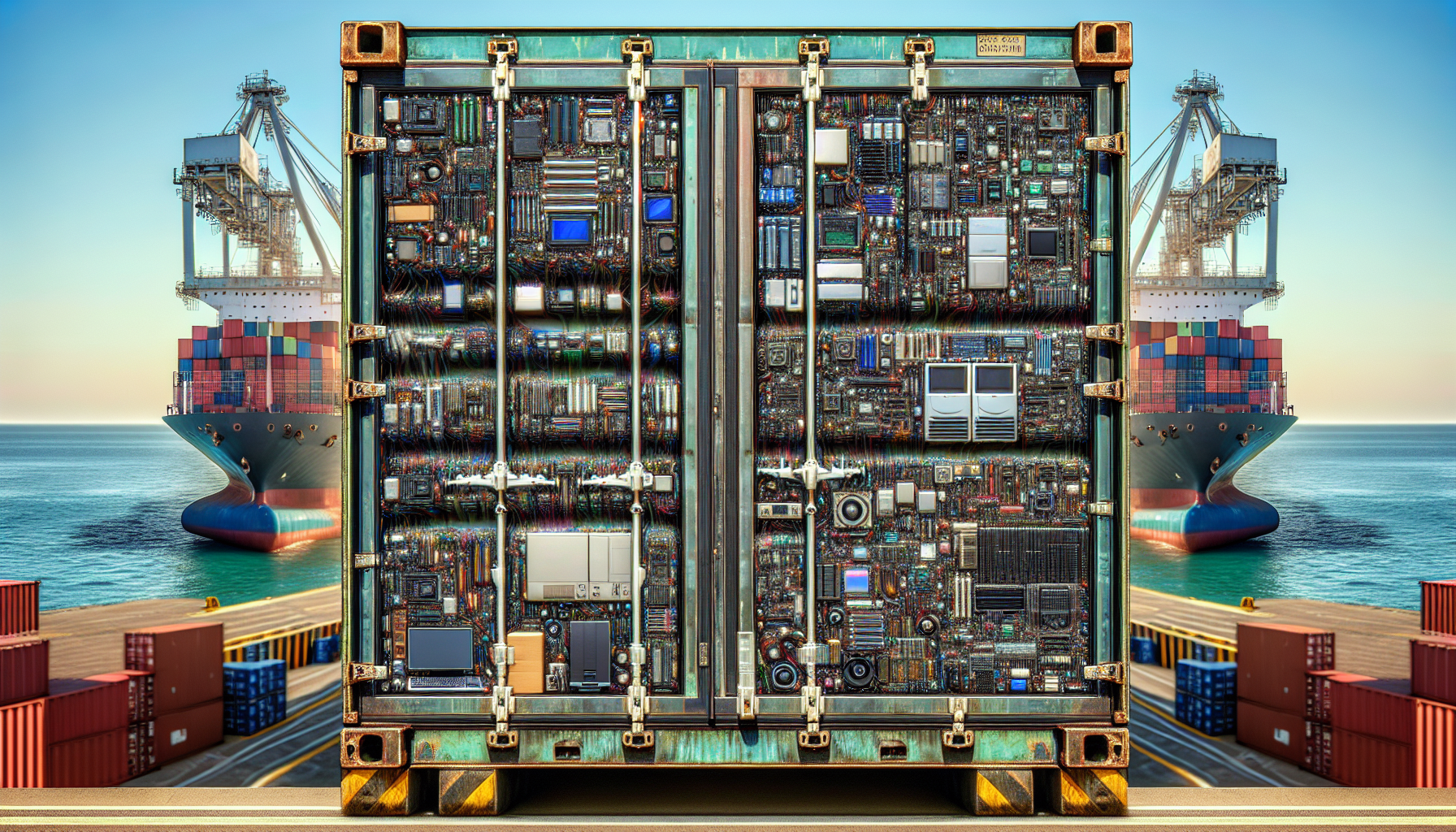How Can I Avoid ISF Penalties For PC Stations
How familiar are you with ISF penalties and how they could impact your PC station operations? Understanding the intricacies of Importer Security Filing (ISF) is crucial for anyone involved in international shipping and customs clearance. You might not realize how easily these penalties can sneak up on you, but with the right knowledge and proactive strategies, you can avoid falling into this trap.

Understanding ISF Penalties
To effectively avoid ISF penalties for PC stations, it’s important to grasp exactly what these penalties are. The ISF, often referred to as the “10+2” filing, is a requirement enforced by U.S. Customs and Border Protection (CBP). This filing involves providing crucial shipment information before goods are loaded onto a vessel destined for the United States. If the information is incomplete or submitted late, CBP can impose significant fines.
What Triggers ISF Penalties?
ISF penalties might seem complex, but the triggers are straightforward:
-
Late Filing: If you submit the ISF after the deadline, which is typically 24 hours before the cargo is loaded on the vessel, you could incur penalties.
-
Incomplete or Inaccurate Information: Failing to capture all required details—like supplier information, shipment weights, or container numbers—also leads to fines.
-
Failure to Submit: Not filing at all is one of the gravest mistakes and can result in heavy fines.
Understanding these triggers is the first step toward protecting your PC station from penalties.
How to Avoid ISF Penalties for PC Stations
Now that you’re acquainted with ISF penalties, let’s explore effective strategies to steer clear of them.
Timely Filing of ISF
The first and most critical step is ensuring timely filing of your ISF. Since the requirement is to submit this information at least 24 hours before your cargo departs, plan ahead. You should gather all necessary details as early as possible in your shipping process. A well-organized filing schedule can be a game changer!
Accurate Information Submission
Accuracy in your submission is non-negotiable. Take time to collect thorough and precise information about your shipment. Double-check all data entries for completeness. It might be helpful to create a checklist for all required fields, which often includes:
- Shipper name and address
- Consignee name and address
- Manufacturer name and address
- Country of origin
- Container stuffing location
Using a checklist can help you minimize errors and avoid penalties.
Use Professional Services
Sometimes, the complexities of ISF filing can be overwhelming, especially for those not well-versed in customs regulations. Here is where professional services can come into play, making the process smoother for you.
ISF 10+2 Filing Services
If you find yourself struggling with ISF requirements, considering professional ISF 10+2 filing services can take the burden off your shoulders. These experts are typically familiar with CBP rules and can help ensure that all information is accurate and submitted on time.
Monitor Changes in Regulations
The world of international shipping isn’t static; regulations change over time. Stay updated on any modifications to the ISF requirements. Subscribe to industry newsletters or join forums where logistics professionals discuss best practices and regulatory shifts.
Create an Internal Review Process
Developing a robust internal review process can significantly lower your risk of costly mistakes. Designate a team responsible for ISF filings and ensure they clearly understand the requirements. Regular training sessions can keep your team sharp and informed about any updates.
Leverage Technology
Using technology effectively can help simplify your ISF filing process. Many software solutions specialize in automating ISF filings, ensuring accuracy and timeliness. Implementing these tools can help reduce the likelihood of human error, making it easier for you to comply with ISF regulations.
Maintain Clear Communication with Suppliers
Effective communication with your suppliers is critical. Ensure that they understand the need to provide accurate information in a timely fashion. Having solid relationships with your suppliers can facilitate smoother transactions and better data accuracy, leading to less risk of ISF penalties.
Regular Audits and Assessments
Conducting regular audits of your filing processes can identify any weaknesses. By assessing your filings periodically, you can catch potential errors before they lead to penalties. This practice not only helps with compliance but also enhances your overall logistics strategies.
Document Everything
Maintain meticulous records of your ISF filings. Documenting every submission along with any communications with suppliers, shipping companies, or customs brokers can help track your process closely. In the case of disputes or questions from customs authorities, having comprehensive records can be invaluable.
Stay Ahead of Your Competitors
Keeping an eye on industry standards and how your competitors are handling ISF filings can provide insights into best practices. Consider attending seminars or reaching out to networks of logistics professionals to learn and implement strategies used by successful peers.

The Role of ISF 10+2 Filing in Compliance
Now that you know how to avoid ISF penalties for PC stations, understanding the essential role of ISF 10+2 filings in overall compliance is critical. This filing not only affects your operating costs due to potential penalties but also impacts your reputation with customs officials.
Importance of Entry Filing
Staying compliant with entry filing is key to smooth operations in international logistics. Entry filing refers to the submission of all pertinent data required to clear goods through U.S. Customs. This process ensures that you comply with various regulations and standards.
You reduce the chance of ISF penalties significantly by integrating ISF 10+2 filings with your entry filings. This synergy creates a seamless experience in getting goods through customs without delays.
Call to Action for ISF 10+2 Filing
If you’re looking to streamline your ISF 10+2 filing process and ensure compliance, consider reaching out to experienced filing services today! They can provide the expertise you need to steer clear of penalties and keep your operations running smoothly.
Importance of U.S. Customs Bonds
Another crucial component of maintaining compliance is understanding U.S. Customs bonds. A customs bond is essentially an agreement between you, the CBP, and a surety company that ensures customs duties and taxes will be paid.
What You Need to Know
-
Types of Bonds: There are different types of bonds, including single-entry and continuous bonds. Choose the type that best fits your shipping frequency and needs.
-
Cost Implications: While bonds incur upfront costs, they save you money in the long haul by preventing the expenses associated with penalties.
-
Renewal and Management: Regularly check the status of your bonds to ensure they remain valid throughout your shipping operations.
Call to Action for U.S. Customs Bonds
Don’t risk delays or penalties due to insufficient bonding. Talk to professionals who can assist you in securing the right U.S. customs bond that fits your needs!
Conclusion
Avoiding ISF penalties for PC stations does not have to feel overwhelming. By understanding the requirements and implementing robust procedures, you can significantly reduce your risk of incurring fines. Make informed decisions about filing processes, invest in professional services, and stay updated on regulatory changes.
Ultimately, having a proactive approach to ISF filings and the associated processes, such as entry filing and customs bonding, will pave the way for a smoother and more efficient shipping process.
Final Call to Action
For personalized assistance, don’t hesitate to Call For Free ISF or Entry Filing Consultation. Getting expert help can be the final piece of the puzzle in ensuring your operations are smooth and compliant!

